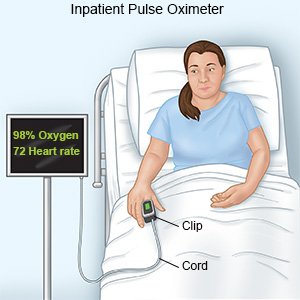Epiglottitis
Medically reviewed by Drugs.com. Last updated on May 6, 2024.
Epiglottitis is swelling of the epiglottis. The epiglottis is the flap of tissue at the back of your tongue. The epiglottis opens when you breathe and closes when you swallow so that no food goes down your airway. Epiglottitis is commonly caused by a bacteria such as Haemophilus influenzae type B (Hib). It can also happen when you breathe in steam, certain chemicals, or smoke from a fire. When the epiglottis swells, it can block your airway. This can cause problems breathing and in severe cases can block your breathing completely. This condition is a medical emergency.
WHILE YOU ARE HERE:
Informed consent
is a legal document that explains the tests, treatments, or procedures that you may need. Informed consent means you understand what will be done and can make decisions about what you want. You give your permission when you sign the consent form. You can have someone sign this form for you if you are not able to sign it. You have the right to understand your medical care in words you know. Before you sign the consent form, understand the risks and benefits of what will be done. Make sure all your questions are answered.
You may need extra oxygen
if your blood oxygen level is lower than it should be. You may get oxygen through a mask placed over your nose and mouth or through small tubes placed in your nostrils. Ask your healthcare provider before you take off the mask or oxygen tubing.
An endotracheal tube
helps you breathe. An ET tube is put in your mouth or nose, and into your airway. You may need a trach if an ET tube cannot be placed. A trach is a tube put through an incision and into your airway. An ET tube or trach may be connected to a ventilator. A ventilator is a machine that gives you oxygen and breathes for you when you cannot breathe well on your own.
IV fluids
help prevent or treat dehydration.
Monitoring:
- A heart monitor is an EKG that stays on all the time to record your heart's electrical activity.
- A pulse oximeter is a device that measures the amount of oxygen in your blood. The device is a sticker or clip applied to your finger or toe.

Treatment options
The following list of medications are related to or used in the treatment of this condition.
Medicines:
- Antibiotics help treat an infection caused by bacteria.
- Steroids help decrease swelling in your throat.
- Sedatives help you feel calm and relaxed.
Tests:
- Blood and urine tests are used to check for infection and get information about your overall health.
- Blood gases are used to measure the amount of oxygen in your blood. These tests are also called arterial blood gases (ABGs). Blood is usually taken from an artery in your wrist.
- X-ray pictures may show swelling in your epiglottis or the tissues in your airway.
- A laryngoscopy is a procedure used to look for swelling of your epiglottis and tissue in your throat. Your healthcare provider may swab your epiglottis during this procedure. The swab will be sent to the lab and tested for infection.
RISKS:
Bacteria may spread to your ears, lungs, or brain. These problems may become life-threatening.
CARE AGREEMENT:
You have the right to help plan your care. Discuss treatment options with your healthcare provider to decide what care you want to receive. You always have the right to refuse treatment.© Copyright Merative 2024 Information is for End User's use only and may not be sold, redistributed or otherwise used for commercial purposes.
The above information is an educational aid only. It is not intended as medical advice for individual conditions or treatments. Talk to your doctor, nurse or pharmacist before following any medical regimen to see if it is safe and effective for you.
Learn more about Epiglottitis
Treatment options
Care guides
Symptoms and treatments
Further information
Always consult your healthcare provider to ensure the information displayed on this page applies to your personal circumstances.
